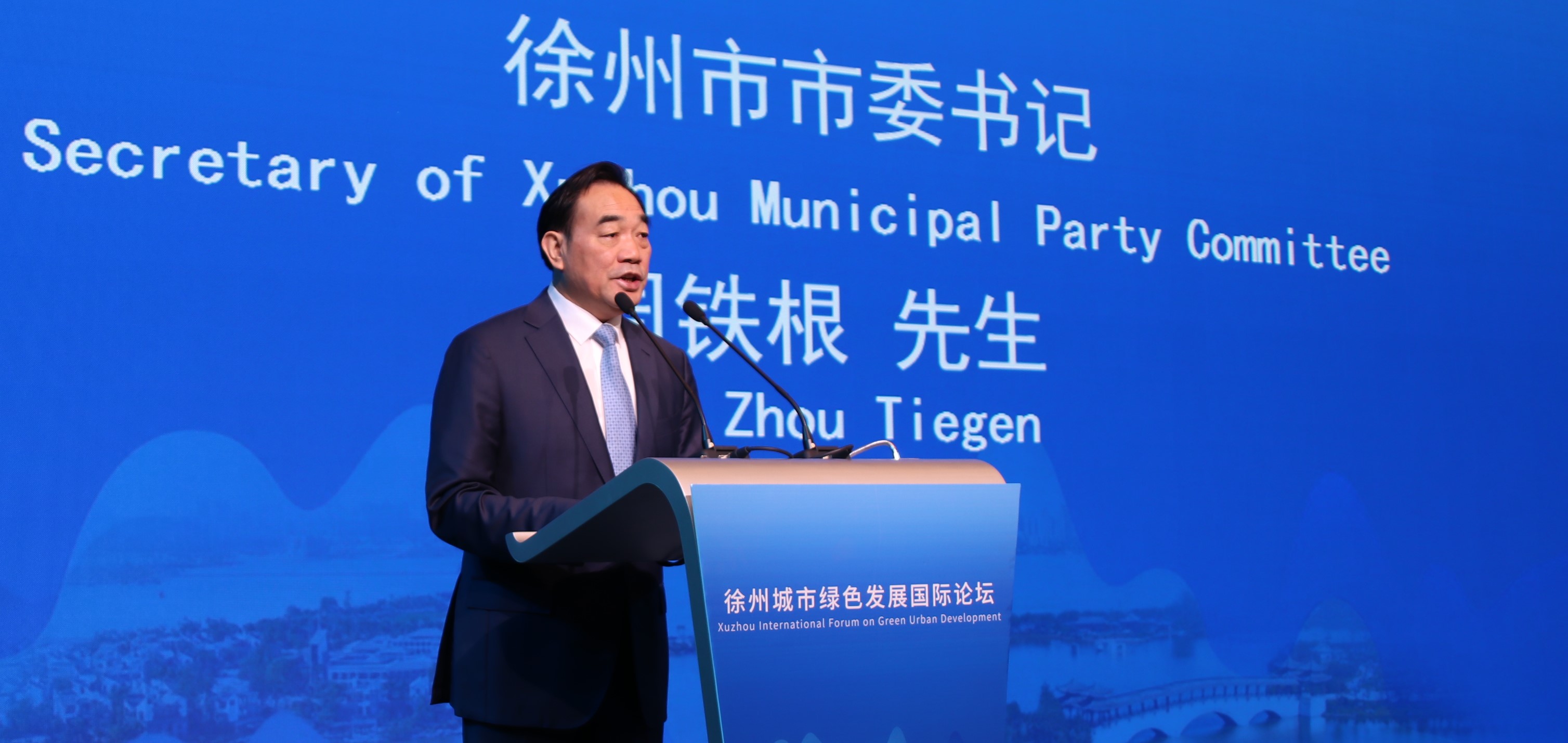Xuzhou, China 12 June 2019 - The Xuzhou Municipality and UN-Habitat hosted prominent experts in urban planning and environmental management for a 3-day international gathering on green urban development and eco-restoration.
Xuzhou, with an urban population of more than 4 million people, closed about 300 open-pit and underground coal mining locations in the past 15 years as well as 47 cement factories, 15 steel factories and 8 coking installations. It also took 52,000 heavily polluting vehicles off the road.
Xuzhou then set off a citywide greening programme, decontaminating waters and soils, turning quarry and subsidence areas into parks and wetlands and reforesting idle lands and hills. Investment, especially in high-tech companies, expanded 18-fold in the past decade and a million jobs were created.
Xuzhou received the UN-Habitat Scroll of Honour in October 2018 and the Executive Director of UN-Habitat Ms. Maimunah Mohd Sharif visited the city recently. In a video message on the opening of the International Forum on Green Urban Development Ms. Sharif said that the city understood the challenges but also the potentials of transformation.
In his opening speech, the Secretary of Xuzhou, Mr. Zhou Tiegen, called green development a key principle for the acceleration of investment. Xuzhou seeks excellence in environmental management and urban planning, as core capacities in support of urban resilience and as enablers for sustained economic innovation.
Maximizing sustainable urban development was also the message of Mr. Wu Hongbo, former Under-Secretary General of UN-DESA. Both Mr. Wu Hongbo and Mr. Bruno Dercon, of UN-Habitat’s Regional Office for Asia and the Pacific, highlighted that the Asia-Pacific region will not reach many of the SDG targets by 2030, without accelerating the implementation of many of the environmental goals, in relation to air pollution, circularity, resilience and biodiversity; and much of the battle will be in cities.
The Forum was supported by three academic institutions in Xuzhou, including the China University of Mining and Technology, the Xuzhou University of Technology and Jiangsu Normal University. The leading German institution in eco-restoration, the Leibniz Institute of Ecological Urban and Regional Development provided international support.
Prof. Dr. Bernhard Mueller, the director of the Leibniz Institute, summarized why eco-restoration practices after the closures of mines are so instructive: success requires leadership and vision, inclusive approaches, institutional collaboration, committed governance frameworks and integrated, comprehensive planning.
The City also released an urban planning guideline, developed in collaboration with UN-Habitat. The Guideline for Eco-restoration and Innovation was developed to support the detailed planning in and around subsidence areas in north Xuzhou and introduced strong planning principles in the context of peri-urban regeneration. The guideline provides a framework for compact, well-connected and walkable urban neighbourhoods mixed with enterprise zones, making use of renewable and water features intelligently and integrating heritage into public space.
In his keynote speech, Mayor Zhuang Zhaolin of Xuzhou had already made the case for successful urban renewal. Green urban development has been the business card of Xuzhou. The city’s commercial areas and hospitals appeal now to visitors well beyond the municipality itself, he said. Building on the eco-restoration achievements of the last decade, Xuzhou now aspires sustainability, resilience and a strong social and cultural vision.
The next generation of Xuzhou’s programmes will focus not on expansion but regeneration. All experts agreed that the city has developed the capacity, through eco-restoration after the mines closed, to continue taking on change and innovation.
